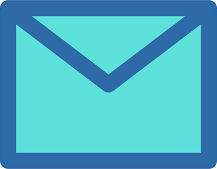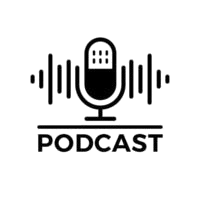Vanessa Notes
I am grateful to everyone who takes the time to read these newsletter, perhaps forward them to a teacher-friend who might need it. I am also grateful if you are simply allowing these emails to continue to come to your inbox. Please feel free to email with requests for topics or if you would like to know more.
Meanwhile, it always seems to me like Thanksgiving is perhaps the most family-oriented holiday - whether that is with the family you were born to, or a family you chose. It is my hope that you get to have a long weekend with rest, food you enjoy, and activities that sharpen your saw.
Introverts: Embracing Quiet Strength in an Energetic World
Society often celebrates extroversion, associating it with leadership, energy, and success. Yet, introverts possess remarkable strengths that are equally valuable—depth, introspection, and calmness. For introverted educators, this dichotomy can be challenging. Teaching often demands extroverted behaviors: leading engaging lessons, managing dynamic classrooms, and presenting with enthusiasm. While introverts can rise to these demands, the constant "on-demand extroversion" can be exhausting.
Professional development environments, too, frequently cater to extroverts. Group discussions, interactive sessions, and energetic exchanges often dominate these spaces, leaving little room for quiet reflection. Similarly, classroom observation rubrics often reward teachers who foster lively, collaborative student interactions while overlooking the value of quieter, reflective teaching moments.
But quiet teaching moments can be transformative. Consider the power of silent activities, like a podcast-based discussion where students engage through online chats, or the subtle victories, like building rapport with a selective mute student. These moments emphasize that impactful teaching isn't always loud.
It's time to challenge the narrative that introverts should adapt to extroverted norms. Instead, we should celebrate introverted spaces and teach extroverts to navigate quiet environments. Balance is key: just as introverts adapt to energetic environments, extroverts can learn to appreciate calm, reflective spaces.
For introverts, the message is clear: embrace your need for quiet and recharge unapologetically. For schools and workplaces, creating environments that honor both personality types will foster inclusivity, balance, and deeper understanding.
Goal-Setting for 2025: A Targetted Approach to Career Transition
The New Year offers a fresh start, but traditional resolutions can feel rigid and prone to failure. Instead of resolutions, consider setting adaptable goals that inspire progress without perfection. Career transitions, especially for educators, benefit greatly from this approach.
One creative strategy is using a goal-setting bingo card. Fill each square with an actionable, meaningful target. For example, career-related goals could include updating your LinkedIn profile, completing an online course, or attending a networking event. The aim isn’t perfection but steady progress. Celebrate each square you complete—it’s about moving forward, not achieving everything at once.
Another way to approach goals is to focus on incremental progress. As an example, one of my 2024 goals was to manage an overflowing email inbox. While not entirely achieved, the effort led to significant improvements and better habits—a win worth celebrating AND thousands fewer emails cluttering the inbox.
For teachers planning to transition out of education, 2025 could be the year to take actionable steps:
- Conduct a personal inventory to define your personal brand.
- Research industries that interest you and explore their requirements.
- Begin to acquire new skills through affordable online platforms like LinkedIn Learning or Coursera.
Remember, goal-setting isn’t about instant transformation but consistent, meaningful progress. Don’t fear aiming high, even if you fall short—every small step gets you closer to where you want to be. If you aim at the center of the target, you miss the goal. Always aim the arrow higher to hit the bullseye.
RECOMMENDATION:
Book Highlight—"Small Habits Create Big Change" by Rebecca Branstetter, PhD
Dr. Rebecca Branstetter’s Small Habits Create Big Change is a must-read for educators navigating stress in the classroom. This insightful book offers practical strategies tailored to teachers, focusing on small, manageable steps to create lasting change based on your teaching personality type. Branstetter’s humorous critique of traditional motivators like "jeans passes" sets the tone for an engaging read. Available in paperback, Kindle, and Audible, it’s perfect for commutes or downtime. Check it out to help battle stress if you are still in the classroom.
I'd love to connect!
   
Email Follow Connect Listen
|